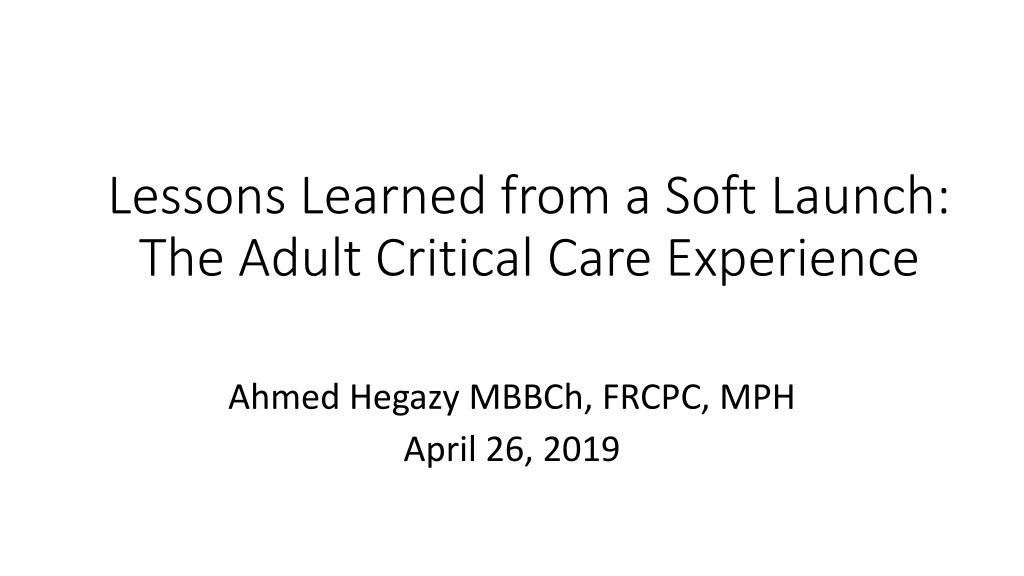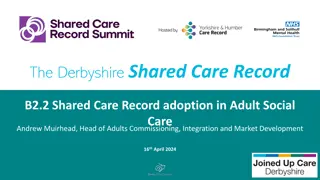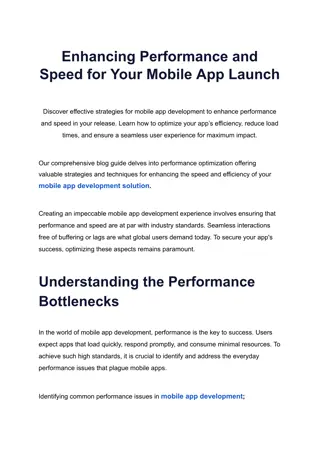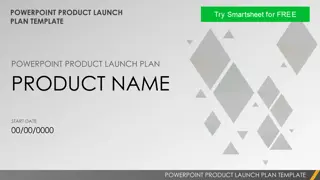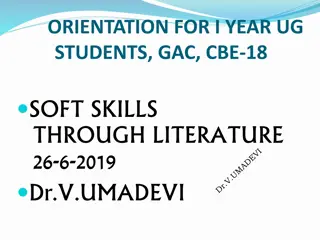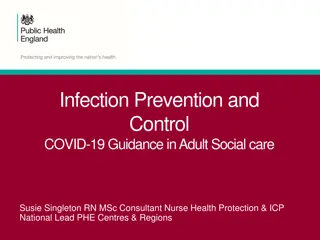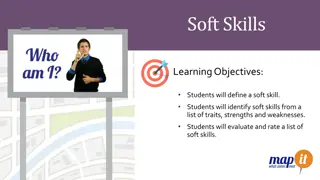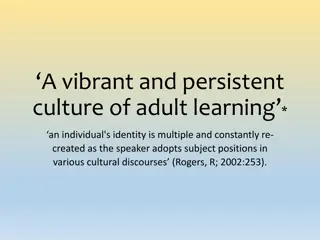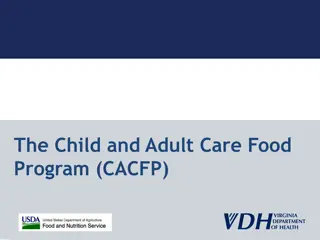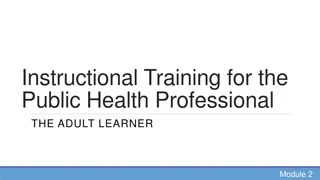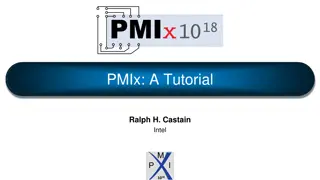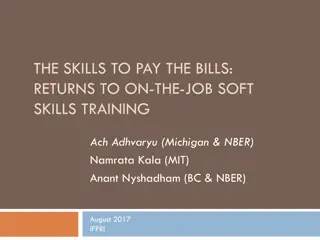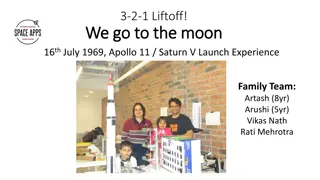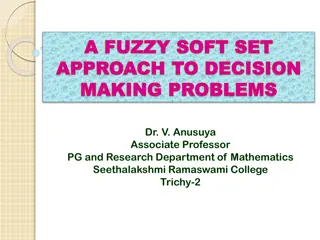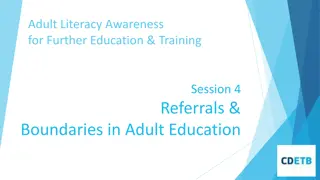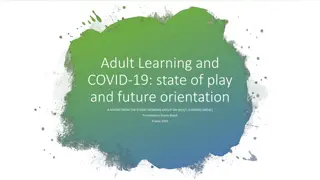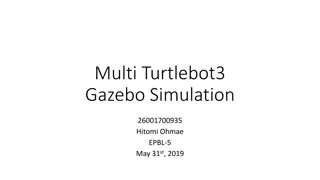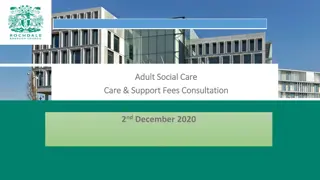Insights from Adult Critical Care Soft Launch
Discover valuable lessons learned from a soft launch in adult critical care, including the importance of competence committees, effective assessment processes, and promoting faculty development events. Uncover strategies to identify and support trainees, enhance communication, and cultivate a culture of continuous learning in healthcare settings.
Download Presentation

Please find below an Image/Link to download the presentation.
The content on the website is provided AS IS for your information and personal use only. It may not be sold, licensed, or shared on other websites without obtaining consent from the author.If you encounter any issues during the download, it is possible that the publisher has removed the file from their server.
You are allowed to download the files provided on this website for personal or commercial use, subject to the condition that they are used lawfully. All files are the property of their respective owners.
The content on the website is provided AS IS for your information and personal use only. It may not be sold, licensed, or shared on other websites without obtaining consent from the author.
E N D
Presentation Transcript
Lessons Learned from a Soft Launch: The Adult Critical Care Experience Ahmed Hegazy MBBCh, FRCPC, MPH April 26, 2019
The Six Pillars of CBD Assessment requirements RCPSC Direct and indirect observations Programs Many low-stakes observations on focused clinical tasks Residents Narrative, actionable, timely, recorded feedback Supervisors Collation, curation and assessment Competence Committee Progression is a group-decision based on evidence Competence Committee
Lesson 1 Forming a Competence Committee is half the battle. A dedicated working group of clinicians/educators. Establish a process. Grow the culture.
Process 1. Compilation of assessments (PA) 2. Pre-population of standardized CC reporting forms (PA) 3. Each reviewer assigned 2 trainees to review prior to meeting
Process 4. Narrative Comments: EPA s, ITERs, Junior Evals Evaluation Summary. Comment on Previous Report Actions Summary of actions for next reporting period. 5. Reviewer presents summary assessment in meeting 6. Discussion followed by finalization of CC report
Communication of Findings to Trainees
What Does the Process Accomplish? Early identification of trainees needing support. Early communication of this to trainees. Eliciting support from RPC and potentially academic advisor. Sets us up for CBD (residents must be reviewed prior to promotion to next stage) Meets accreditation standards.
Lesson 2 Promoting & organizing CBME faculty development events goes a long way in growing the culture. Annual Education Retreat. Grand Rounds. Department Emails. A Workshop in Coaching Coach Your Colleagues to Victory: An Axe Throwing Event
Coaching Event Released the axe too early Video of coaching event participant at axe throwing facility
Lesson 3 Set-up an accountability and rewards system.
Rewards Fellow Teacher of the Year Award Staff selected based on weighted score: 40% nominations 20% teaching session ratings 40% EPA completion score
Rewards Fellow Teacher of the Year Award Staff selected based on weighted score: 40% nominations: fellows asked to submit ranked list of the top 3 teachers 20% teaching session and rotation teaching ratings (number & ratings) 40% EPA completion score: completed EPA s / clinical weeks Other ideas?
Accountability Resident responsible for requesting & triggering EPA s Sending EPA s after the fact with no notification of staff is not acceptable. Bonus: offer & trigger the EPA yourself Staff completion encouragement
Lesson 4 Try to make on the spot feedback the rule rather than the exception.
Elentra Resident can complete his/her own assessment. Then you can review, adjust as necessary, then confirm submission via your PIN (on the spot). Or he/she can complete it and you can confirm via email (no PIN).
Lesson 5 The Academic Advisor Role is very important with residents needing more support. Meet with resident regularly to: Review performance information (EPA s, MSF) Create/implement individualized learning plans Act as Competence Coaches Frequency of Meetings: quarterly Complete and submit Academic Advisor Meeting form
Lessons Learned from a Soft Launch Forming a Competence Committee is half the battle. Promoting & organizing CBME faculty development events goes a long way in growing the culture. Set-up an accountability and rewards system. Make on the spot feedback the rule rather than the exception. Academic Advisors important play an important role in the process.
just for the record, not all positive change feels positive in the beginning S.C. Lourie
